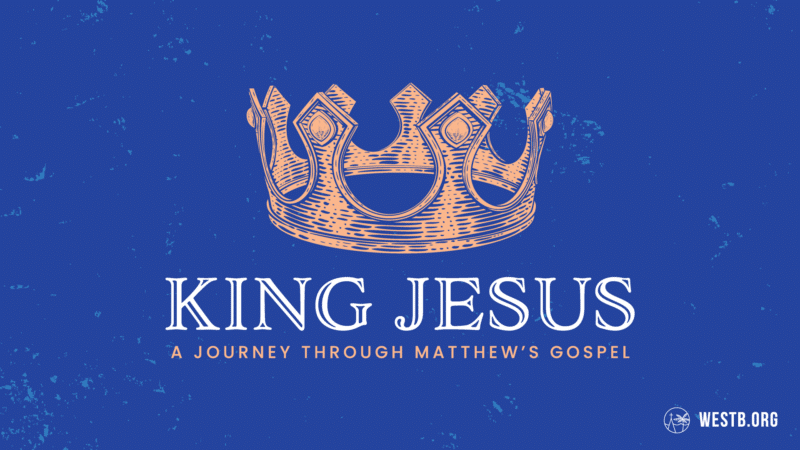How God Uses Broken People
Series: The Kingdom of God
Sermon Title: How God Uses Broken People
Speaker: Sam Rainer
Date: November 10, 2024
Reflect
- Share a funny story of a time when you confidently committed to something but found it harder than expected.
- Have you ever tried to “fix” a situation on your own and found it only made things messier? What happened?
Encounter
- In Matthew 26:56, it says, “all the disciples deserted Him and fled.” What do you think the disciples felt in that moment? Why might they have felt so afraid?
- How do you think Peter’s self-reliance led to his denial of Jesus? What does his experience teach us about depending on our own strength?
- Compare Peter’s response to his failure with Judas’s response. What stands out about the difference between repentance and guilt?
Transform
- Think about a time when you felt you had failed God or someone else. How does Peter’s story of restoration encourage you to respond?
- What steps can our group take to encourage one another to rely on Jesus rather than ourselves, especially when facing difficult situations?
Additional Discussion Questions
- Why do you think Jesus chose Peter, knowing he would deny Him? What does that say about God’s perspective on our weaknesses?
- What are some practical ways we can seek restoration with God after failure?
- How can we encourage one another to overcome guilt and embrace repentance?
Interesting Facts and Tidbits
- Peter, initially a fisherman, was known for his bold and impulsive nature, which sometimes led him to act without fully thinking, like cutting off the slave’s ear (Matthew 26:51).
- The only two times “charcoal fire” is mentioned in the New Testament are during Peter’s denial and later when Jesus restores him, symbolizing grace covering each of his denials (John 21).
- In Luke 22:31, Jesus warns Peter that Satan desires to “sift” him. This word choice emphasizes spiritual testing, likening Peter’s faith to the process of separating wheat from chaff.
Related Passages
- John 21:15-19 – Jesus restores Peter by asking him three times, “Do you love me?” This exchange provides a beautiful picture of Jesus’ grace and desire to restore rather than condemn.
- Luke 22:31-34 – Jesus warns Peter about the coming test from Satan, highlighting the spiritual battle we face and the need for God’s strength over self-reliance.
- Psalm 51 – David’s prayer of repentance illustrates genuine repentance and restoration, echoing themes of relying on God for cleansing and renewal.
- 1 John 1:9 – This verse underscores the promise that God is faithful to forgive and cleanse us when we confess, which is foundational to understanding true repentance.
- Romans 8:1-2 – These verses remind us that there is no condemnation for those in Christ, a powerful truth for overcoming guilt and embracing God’s grace.
Key Terms:
- Repentance – Turning away from sin and turning back to God. It involves a sincere commitment to change, seeking forgiveness, and aligning with God’s will.
- Grace – Unmerited favor from God, allowing forgiveness, restoration, and blessings, even when undeserved. Grace is central to God’s response to human failure.
- Redemption – The act of God saving or restoring people from sin and brokenness. Through redemption, God transforms our failures into purposes aligned with His will.
- Self-reliance – Depending only on ourselves instead of on God. In a Christian sense, it’s often seen as relying on our own strength and not seeking God’s guidance.
- Idolatry of Self – Putting ourselves or our desires first instead of letting God be in charge. It’s like worshiping our own abilities or choices instead of trusting God.

